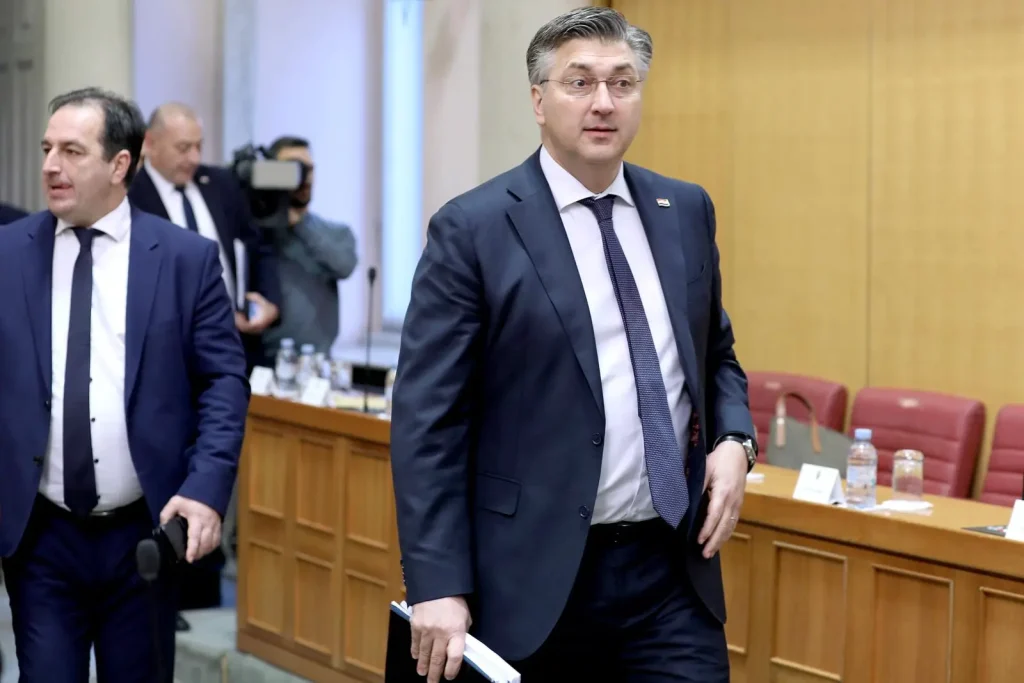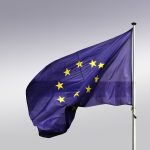The government is set to introduce a special ID card for state institution employees, a move which will cost millions
Just when you thought Croatia couldn’t possibly have more forms of card that you need to carry around with you, it goes and introduces yet another one, this time for the employees of state bodies. Yes, you’re right, this is precisely what the country needs to be spending time on during difficult social and economic times. Still, we may as well visit the subject – as Index reports, despite being firmly in the shadow of the heated debate regarding the military training of Ukrainian soldiers in Croatia, the final proposal of the law on the official identity cards for state body employees, has remained strong.
Here we have just another way of spreading the plague of needless, time wasting bureaucracy among the Croats, and it is going to cost a pretty penny (or two). What is an official ID card for a state employee anyway, and why bother with it? Those are valid questions, so here is what Article 4 of the Final Bill on the matter says: “An official ID card is an electronic public document by which an employee of a state body proves their official status and electronic identity.”
“An official ID card is to be used as a means of electronic identification and authentication to access electronic services, to activate other authentication or signature means, and to sign acts for which the user of the official ID card is authorised,” it is stated in paragraph 3 of the same article.
In addition to the above, this card “can be used for physical identification and contactless application for the purpose of registering entry into the premises of a state body and for other purposes prescribed by special regulations”.
I’m sure you’ll agree that this additional bureacratisation in a society already perversely obsessed with red tape is something that we all really require.
There is plenty of opposition to this, both from the world of Croatian politics and from various other experts in this field. Most people will oppose the sheer amount of cash coming from somewhere that will be poured into this.
The opposition criticised this idea last summer, believing that this law is utterly redundant, unnecessary, that without it the state would have saved a massive 5.8 million kuna, and so on.
“This law makes no sense, it should be withdrawn, why the new cost?” asked Zeljko Pavic, a parliamentarian for the Social Democrats, who also went on to explain that there are already ready-made services that can be used without such ID cards which enable greater flexibility.
State Secretary Josip Salapic also stated that these identity cards “are in line with the development of the information society and digitisation”, which is why it is “necessary to enable state and judicial officials as well as civil servants and state employees both simple and quick access to various databases and applications that are used to perform business and electronic signature of acts”.
He added that around 60,000 official state body employee ID cards now need to be changed, of which 30,000 would be financed with EU funds. The new cards would be valid for three years, and one would cost 125 kuna.
Plenkovic has been busy meeting with all and sundry, from Google’s boss to the the president of Azerbaijan
PM Andrej Plenkovic has recently held numerous bilateral meetings on the sidelines of the World Economic Forum (WEF) in Davos, with, among others, the Secretary General of the OECD, the President of the European Investment Bank, the head of Google and the head of Visa Europe.
He took to the social media platform Twitter to tweet that he had met with Werner Hoyer, head of the European Investment Bank (EIB), an institution which, at least according to Plenkovic, has so far directed seven billion euros through various loans to both the public and private sectors in Croatia.
“We’re discussing project cooperation as well as global financial challenges,” the tweet reads.
In Davos, the Prime Minister also met with representatives of the Global Citizen organisation, whose activities, as he wrote, Croatia continues to strongly support. At the meeting with the Secretary General of the Organisation for Economic Cooperation and Development (OECD), Mathias Cormann, he discussed Croatia’s accession to Schengen and the Eurozone as the final strategic step of the country’s integration into the circle of the most developed countries in the world.
“We also exchanged opinions regarding the economic situation in Europe and efforts to overcome energy and inflationary pressures,” tweeted Plenkovic.
Meetings with the head of Google, the president of Azerbaijan, the president of the European Parliament also took place during what was a very busy week for the PM. Google’s president of global affairs, Kent Walker, was also on the list of Plenkovic’s meetings, as was the head of Visa Europe, Charlotte Hogg, with whom he discussed potential cooperation and investments.
He discussed the further strengthening of relations between Croatia and Azerbaijan with an emphasis placed primarily on energy and economic cooperation with Azerbaijani President Ilham Aliyev, and he also met with the President of the European Parliament, Roberta Metsola.
“We’re grateful to the European Parliament for supporting Croatia’s accession to Schengen and the Eurozone. We’ve been discussing the continuation of aid to Ukraine, the European [Union] path of Southeastern Europe, and the green and digital transition,” concluded the Prime Minister on Twitter.
He also met with the Serbian President, Aleksandar Vucic.
Economist Damir Novotny claims that the government is trying to turn the trade sector into ”enemy number one”
What with the recent introduction of the euro as Croatia’s official currency and the scrapping of the kuna, price hikes as a result of inflation and of the introduction of the new currency have been the hottest topic since the new year began. The government has stepped in and has involved all of the relevant authorities in making sure those stores and service/goods providers who are unjustifiably raising their prices lower their prices to what they were back in December 2022, but not everyone feels their moves are correct.
Economic analyst Damir Novotny was a guest on N1 television’s Novi Dan/New Day, during which he commented on price hikes and inflation trends, as well as the government’s moves as a result of the above.
Commenting on the new data on inflation and whether it is a decreasing trend, Damir Novotny said: “It’s possible, but not because of the movement on the Croatian market, but because of the global movement. This is happening on large markets such as those of the USA, France, etc, and that will spill over to Croatia. It’s possible that the trend of slowing growth will spill over into Croatia, but prices will not return to what they were back in 2020.”
When asked why most products are cheaper in other countries, which is especially evident after the introduction of the euro, the economist explained the details:
“The main reason is the difference in the tax burden. In Croatia, until recently, there was one rate, 25%, and it’s higher than the VAT rate. That rate is very high compared to the rates in Austria, Germany, Italy… not to mention the reduced rates. Austria has 9.5% VAT on all food products, including pet/animal food, taxed at significantly lower rates than in Croatia. Lastly, excise taxes in Slovenia are very low. Here in Croatia, there is an excise tax on plain water, while in Slovenia such an excise tax is very low or non-existent. Jana is therefore cheaper in Slovenia. Another important component of price growth in this country is the long-term closed market. While we had one monopolist, one litre of oil cost 15 kuna back in the year 2000, which is a very high price. And thirdly, in a short period of time over the summer, Croatia has a sudden increase in demand for all goods due to the tourist season. Ten million people come to the Croatian market, the demand increases and those people are ready to pay almost any price.”
When asked whether or not it is really realistic to expect what the government is asking from traders in reality, which is the return of December prices, Novotny pointed out:
“For the past twenty years, every single government has chosen an enemy in the private sector. Milanovic’s government turned the banking sector into enemy number one. Now this government wants to make the trade sector the enemy, they constantly talk about traders being dishonest. This isn’t the discourse of market-oriented economies… Of course, the government needs to have an institutional framework to try to protect consumers and force retailers to disclose product defects, but that’s impossible. Hundreds of thousands of items cannot be controlled.”
When asked if it was possible to reduce the VAT and whether it would affect the movement of prices, he said: “I think it’s impossible. Once the VAT is raised, which was done by Jadranka Kosor, it can’t be reversed. The government relies on VAT when it comes to tax revenue, which is the most important source of tax revenue and it is indeed a generous tax. The government will probably maintain this tax burden, and this individual reduction leads to nothing. Government interference in prices is a wrong direction for government policies.
The government reacted, at least in my opinion, unnecessarily abruptly, there was hysteria, the media from Germany, Turkey, Poland, Slovenia called me, asking what was happening. Europe saw that something was happening in Croatia, but they didn’t understand why it was happening. Prices have been rising across the entire EU.”
Novotny pointed out that it is not true that Zagreb is unjustifiably raising its water prices: “That is not true, the price of water was terribly low here.”
He also noted that he doesn’t expect any further price increases, explaining that we have now passed the first energy shock and that we won’t see a sharp rise in prices again. “I see that retirees are the ones who complain the most, and it’s true that pensions are very low in this country, the government needs to intervene there if anywhere,” concluded Novotny.
Now the Eu(ro)phoria surrounding Eurozone and Schengen accession has died down, Plenkovic and Milanovic are back to falling out with each other
Plenkovic had a recent interview for French television during which he discussed the vote in the Croatian parliament on the training of Ukrainian soldiers. He said that journalists keep asking him about it and he has to explain to them repeatedly what it’s all about.
“It’s not a denunciation, I heard what Zoran Milanovic said about all this. Imagine coming out with some thesis that Croats are some kind of American slaves. These are serious theses, what kind of anti-American policy, anti-NATO policy is that? These absurdities never end. These are very serious political mistakes that people in the political community are shocked by. They ask: ‘Hello, what is Croatia saying here!?” he stated, saying that those who have been observing the situation will know precisely where Croatia stands when it comes to the Russia-Ukraine war, and that is firmly by the side of Ukraine and firmly against Russia.
“I’m talking about this again because journalists keep asking me about it,” he repeated, before opening fire on Milanovic again. “He’s leading an absurd policy against Croatian interests…” concluded the Prime Minister when discussing his disapproval of Milanovic’s recent bizarre statements about being ”America’s slaves”. The two have had an ongoing issue for a long time now, and never miss an opportunity for the claws to come out.
For more on Croatian politics, make sure to check out our dedicated section and follow our Week in Croatian Politics articles which are published every Friday.











